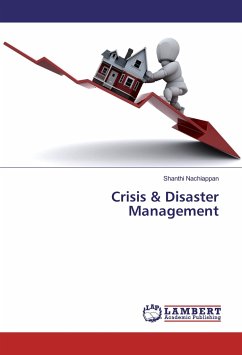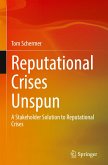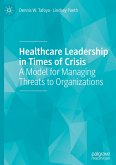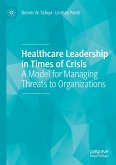This book explores how and why an event is a precursor to the emergence of a crisis and how a given crisis affects an organization and its stakeholders. Using existing systems theory blended with innovative use of wave, epidemiological, immunological and psycho-social theories, the author discusses ways to understand the effects of different types of crises while showing how to document and/or quantitatively measure those effects. The book offers new models illustrating how events trigger crises and how they subsequently morph into catastrophes and disasters. Using theories and tools tested in organizational settings to identify contributors to a traumatic event, this book makes a valuable contribution to organizational and crisis management literature.
Bitte wählen Sie Ihr Anliegen aus.
Rechnungen
Retourenschein anfordern
Bestellstatus
Storno








